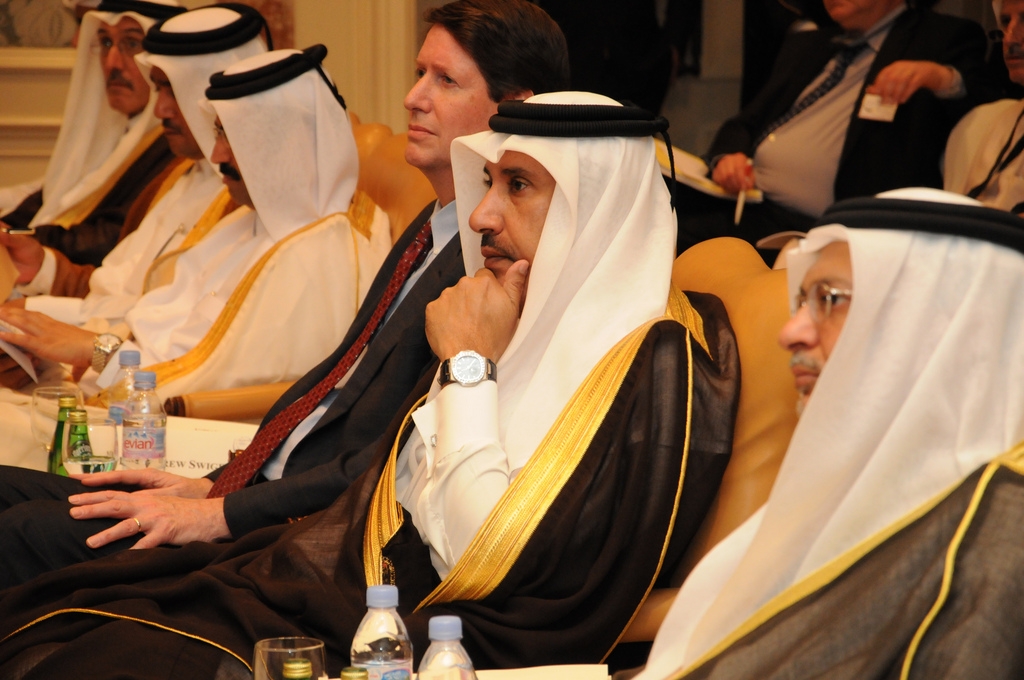Content from the Brookings Doha Center is now archived. In September 2021, after 14 years of impactful partnership, Brookings and the Brookings Doha Center announced that they were ending their affiliation. The Brookings Doha Center is now the Middle East Council on Global Affairs, a separate public policy institution based in Qatar.
Editor’s Note: This report documents the proceedings of the inaugural Brookings Doha Energy Forum, a platform intended to foster debate, dialogue, and outcome-oriented research around one of the major geopolitical trends of the 21st century. The Forum convened a private, high-level meeting of senior government officials, senior energy company executives, and world-class energy analysts from the Middle East, Asia, Europe, and the United States.
LETTER FROM THE CONFERENCE CONVENERS
Dear Colleagues,
It is our pleasure to release the proceedings of the inaugural meeting of the Brookings Doha Energy Forum, a platform intended to foster debate, dialogue, and outcome-oriented research around one of the major geopolitical trends of the 21st century.
The predominant international energy relationships of the past 50 years have been between the supplier states of the Middle East and the consumer states of the industrialized countries of the Organization for Economic Cooperation and Development (OECD). In recent years, however, a range of economic, political, technological, and environmental factors have begun to challenge the status quo. New demand centers in South and East Asia and a leveling out of demand in the United States and Europe have tilted the global energy landscape eastwards, giving increasing market power to emerging economies. The recent discovery and development of unconventional sources of oil and gas has accelerated this shift, and has begun to fragment the positions of traditional consumer nations. Rising energy demand in China and India has been accompanied by a wave of strategic energy investments by those countries as they seek to maximize energy security.
Systemic shifts in the global balance of supply and demand are coinciding with a period of rapid and unprecedented change in the Middle East. Whether or not unrest spreads in the Gulf, its leaders will have to navigate between meeting the increasing demands of domestic populations and meeting rising global demand for energy. The emergence of new governments in other parts of the region and fears of revolutionary “contagion” are already having an impact on oil prices, investor confidence, and energy security considerations among consumer nations.
This combination of global structural shifts and local political transitions has the potential to lead to a fundamental transformation of the region’s role and the global politics of oil and gas, and gives rise a number of critical questions:
- What will be the strategic and economic implications of an eastward shift in focus by Middle East suppliers?
- What will changes in the domestic policies mean for short and long-term stability of global energy markets?
- As emerging markets become more important consumers and investors, how will the investment balance change between host and home countries?
- What will the changing nature of supplier-consumer relationship mean for governance and transparency in producer nations?
The Brookings Doha Energy Forum, a collaboration between the Brookings Institution’s Doha Center and the Brookings Energy Security Initiative, was created to address these questions. At its inaugural meeting in February 2012, the Forum convened a private, high-level meeting of senior government officials, senior energy-company executives, and world-class energy analysts from the Middle East, Asia, Europe, and the United States. The two-day meeting, which was opened by His Excellency Sheikh Hamad Bin Jassim Bin Jabr Al-Thani, Prime Minister and Minister of Foreign Affairs of Qatar, provided an opportunity for an open dialogue on the changing global energy landscape, the impact of a revolutionary Middle East on global energy markets, and the future of energy investments in the Middle East. The findings of the conference are reflected in this report.
The Brookings Doha Energy Forum relies on the expertise and support of stakeholders in the public and private sectors, both in the Middle East region and in the broader international community. We look forward to working with together within Brookings and with our partners to ensure the continued success of the project.
Sincerely,
Salman Shaikh
Director
Brookings Doha Center
Charles L. Ebinger
Director
Brookings Energy Security Initiative



